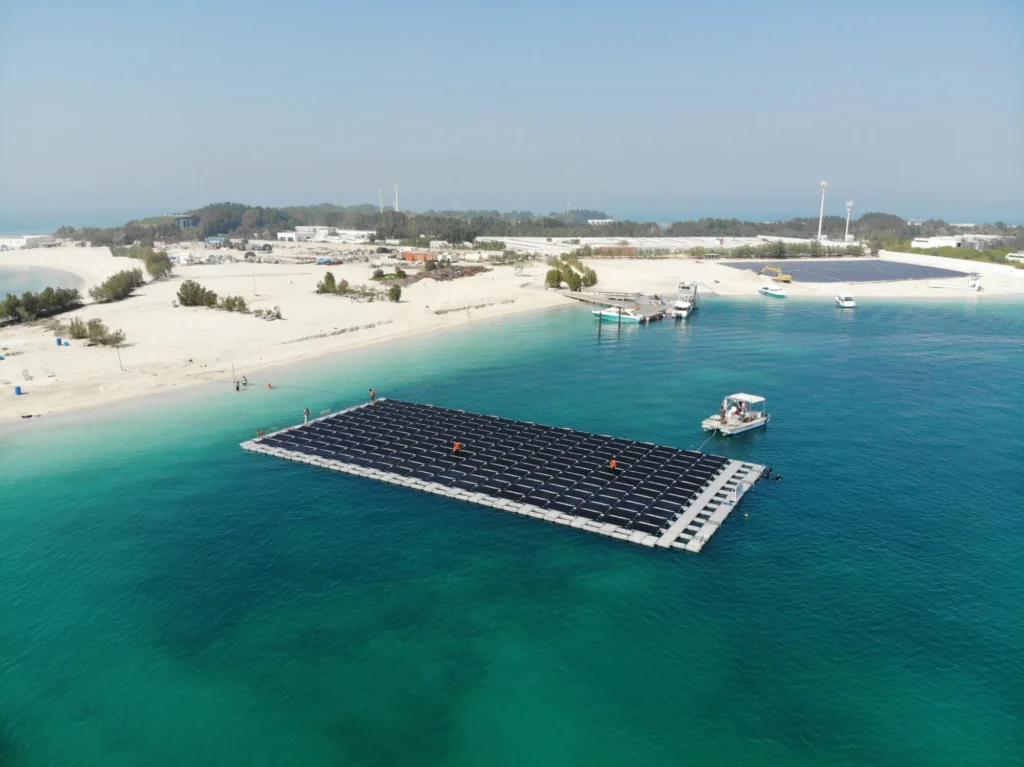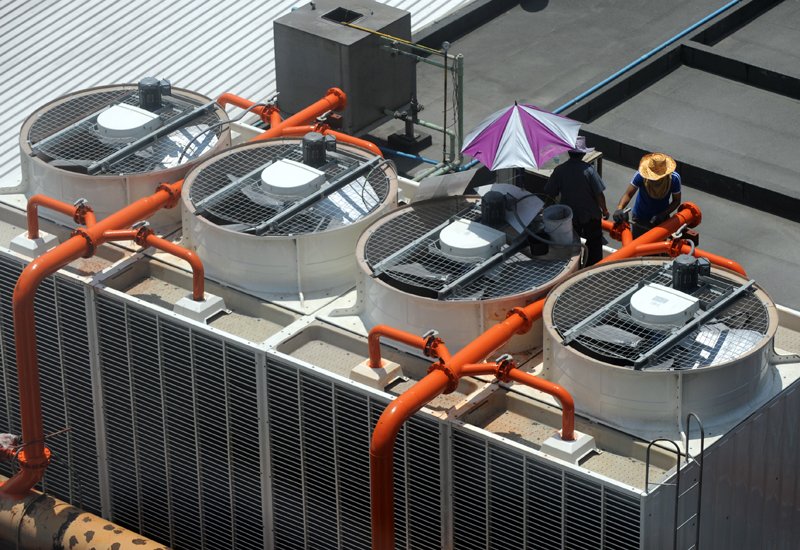In an exciting move toward sustainable living, the Northern Emirates have officially launched a pilot project to test solar cooling technology. This cutting-edge initiative is set to revolutionize the way we cool buildings and urban spaces, offering a more eco-friendly alternative to traditional air conditioning. The pilot, which will be closely monitored and evaluated over the coming months, represents a significant step in the UAE’s ongoing efforts to embrace green technologies and reduce its carbon footprint.
What Is Solar Cooling Technology?
Solar cooling technology uses solar energy to power cooling systems, reducing the need for electricity generated by fossil fuels. Traditional air conditioning systems often rely on electricity from non-renewable sources, contributing to environmental pollution and the depletion of natural resources. In contrast, solar cooling technology captures and converts sunlight into energy to cool buildings, offering a cleaner, more sustainable alternative.
This innovative approach harnesses solar panels to generate electricity, which then powers cooling systems such as absorption chillers or cooling units that work in harmony with solar energy. By tapping into one of the UAE’s most abundant resources—the sun—solar cooling technology promises to deliver significant energy savings while contributing to the country’s climate goals.

The Need for Sustainable Cooling Solutions

The UAE is known for its scorching heat, with temperatures regularly exceeding 40°C (104°F) during the summer months. As a result, air conditioning has become an essential part of daily life, especially in residential and commercial buildings. However, the widespread use of air conditioning has led to high energy consumption and rising electricity demand. This, in turn, puts a strain on the power grid and increases the UAE’s reliance on fossil fuels.
The introduction of solar cooling technology could help ease these challenges. By using renewable energy, the technology not only reduces electricity consumption but also lowers greenhouse gas emissions. As the UAE continues to diversify its energy mix and work towards a more sustainable future, solar cooling stands out as a key innovation with the potential to reshape how the country manages its cooling needs.
The Pilot Project in the Northern Emirates
The pilot project, launched by the UAE government in partnership with several local and international tech firms, will test solar cooling technology in real-world conditions across the Northern Emirates. These regions, including Fujairah, Ras Al Khaimah, and Ajman, are known for their hot climates, making them ideal locations for this trial.
Over the next several months, the pilot will evaluate the performance of solar cooling systems in various settings, from residential buildings to large commercial complexes. The goal is to assess how well these systems can handle the high temperatures of the region while maintaining efficient cooling standards. Data collected from the trial will help refine the technology and pave the way for broader adoption across the country.
The project also aims to explore the financial feasibility of solar cooling technology. While initial setup costs may be higher than traditional air conditioning systems, the long-term savings from reduced energy consumption could make solar cooling a more cost-effective option in the future. Additionally, the use of solar energy could significantly reduce electricity bills, making it an attractive choice for both businesses and homeowners.
Potential Benefits of Solar Cooling Technology

There are numerous benefits to implementing solar cooling systems, not only for the environment but also for the economy and society. Here are some of the key advantages:
- Reduced Carbon Emissions: By relying on renewable solar energy, solar cooling systems can significantly cut down on carbon emissions, helping the UAE meet its climate goals. This is especially important as the country works toward its commitment to reduce its carbon footprint by 70% by 2050.
- Lower Energy Costs: Solar cooling systems can reduce dependence on traditional energy sources, resulting in lower electricity costs for consumers. Over time, the savings generated from reduced energy bills can offset the initial investment required to install the technology.
- Energy Independence: Solar cooling technology offers the potential for greater energy independence. By using locally sourced solar energy, the UAE can reduce its reliance on imported fossil fuels, enhancing national energy security.
- Job Creation: As the solar cooling industry grows, it could lead to the creation of new jobs in the fields of technology, research, and installation. This would further contribute to the UAE’s economy while fostering innovation in renewable energy.
- Environmental Sustainability: Solar cooling technology is not only eco-friendly in terms of energy use but also in terms of the materials used in the systems. Many solar-powered cooling systems are designed with minimal environmental impact, using recyclable materials and minimizing waste.
Challenges and Future Outlook
Despite its many advantages, the adoption of solar cooling technology does come with some challenges. The upfront costs of installation can be high, particularly in areas where solar panels and other infrastructure are not yet widespread. Additionally, solar cooling systems rely on consistent sunlight, meaning their efficiency can vary depending on weather conditions. In the UAE’s summer months, when demand for cooling is at its highest, the technology’s effectiveness will be put to the test.
However, experts are optimistic that these challenges can be overcome. With ongoing advancements in solar technology and increasing government support for sustainable energy initiatives, the long-term potential of solar cooling systems in the UAE is immense.
The pilot project will provide valuable insights into how solar cooling technology can be optimized for the region’s unique climate and infrastructure. If successful, it could serve as a model for other countries with similar environmental challenges, helping to drive the global transition to clean energy solutions.
Conclusion
The launch of the solar cooling technology pilot project in the Northern Emirates marks an exciting milestone in the UAE’s journey toward a greener future. By harnessing the power of the sun to cool buildings and urban spaces, the project has the potential to reduce energy consumption, lower costs, and significantly cut carbon emissions. As the world continues to face the challenges of climate change, innovations like solar cooling technology will play a crucial role in building a more sustainable and resilient future. If the pilot proves successful, it could lead to the widespread adoption of solar cooling systems across the UAE and beyond, contributing to a cleaner, more sustainable world.
Also read: UAE Scores Big Victory Before World Cup Qualifiers Begin













